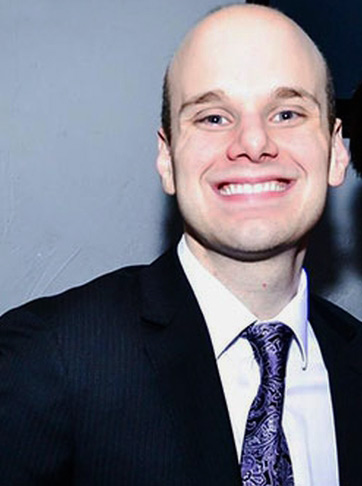In a case that raises questions about the professional obligations of an articling employer, a law student is suing Legal Aid Ontario and the Law Society of Upper Canada after being terminated two weeks into his term.
 In Polanski v. Scharfe, Charles Polanski claims his supervisor at LAO, Sharon Scharfe, breached her professional duties by terminating his contract without specifying “unresolvable issues.”
In Polanski v. Scharfe, Charles Polanski claims his supervisor at LAO, Sharon Scharfe, breached her professional duties by terminating his contract without specifying “unresolvable issues.”
He claims the law society, too, was negligent in allowing the breach to occur.
Polanski’s lawsuit relies entirely on a provision within the Lawyer Licensing Policies that states “a Candidate or principal may terminate articles where problems arise between the candidate and the principal that cannot be resolved to the satisfaction of both the candidate and the principal.”
According to Polanski, Scharfe violated her professional duties by failing to specify “unresolvable issues.” Unfortunately for him, the statement of claim lacked any information about reasons for the termination.
Ontario Superior Court Justice Edward Morgan, reviewing a motion to strike the claims for lack of cause, seems utterly bewildered by the dearth of useful information.
“I do not know what happened to abort the Plaintiff’s articles,” writes Morgan in his decision. “One can read and re-read the rather brief Statement of Claim, but nothing will reveal why the Plaintiff was fired.
“To make a short story long, the pleading does not disclose what led to the unfortunate situation in which the Plaintiff now finds himself and what, if anything, he did to deserve having his career cut short at such an early stage. Nor does it reveal why his employer, LAO, dismissed him, what steps Ms. Scharfe as articling principal took or did not take culminating in the termination of his articles, or what LSUC as regulator did or did not do in response to this situation, etc.”
Morgan starts by striking out the claim against the law society. He suggests that Polanski has misunderstood the role of the law society as a professional regulator, and not a service administrator that can be held to account for failing to carry out its mandate.
In a clever analogy, Morgan says that “LSUC no more administers an ‘articling program’ or provides a ‘service’ for licensees than Canada Revenue Agency administers a ‘taxation program’ or provides a ‘service’ for taxpayers. That is simply not the function of the regulatory body.”
Even if LSUC could be considered a service provider, Morgan writes, the law society has a statutory immunity from these claims, which can only be bypassed by a claim of gross negligence.
Morgan then goes on to strike the claim against Scharfe, although he suggests that it’s at least arguable that an articling principal has obligations to the student. He has given the articling student, by definition inexperienced, 30 days to amend his claim to resolve certain defects.
For example, the claim is directed against his supervisor but not LAO — a fatal flaw given that Scharfe herself was only an employee and not the “directing mind” of the organization. Regardless of the merit, Scharfe personally cannot be held responsible for the organization’s decisions.
More importantly, the judge insists any amended statement of claim contain actual information about an instance of negligence or malicious intent.
“Ms. Scharfe’s breach of duty is asserted as a bald fact,” writes Morgan, “with nothing further to indicate what she did to allegedly fail to fulfill her professional duties or to fall below the requisite standard of care.”
Family lawyer Andrew Sudano, at Shawyer Family Law in Toronto, has been on both sides of the issue in recent years. Called in 2012, he articled with his current firm, and then just this year acted as articling principal for the first time.
Sudano says that he feels for the plaintiff: “When we interview with the students, they are, generally speaking, very vulnerable, because they have a lot of debt and they don’t know what they want and they don’t know what to expect.”
While there simply isn’t enough information in this case to speculate as to what might have caused the termination, Sudano says, in his experience, employers will stick it out with their articling students, even if problems arise.
“You’re making such a commitment to that person,” he says. “And this person is going to become a lawyer in their own right, and we may be working together for 30 or 40 years, so it’s important you look at things in the long term and try to not alienate too many people.”
The reality, however, is that some articling students, regardless of their grades or educational credentials, may not be the right “fit” for an organization, he says — a problem that could constitute an “unresolvable issue.”
Practically speaking, Sudano suggests employers and articling students draft an employment contract with clear expectations.
“It’s always good, particularly for students, to put it in writing,” he says. “What are the expectations? What am I explicitly required to do, so this way there’s no mystery and they’ll at least have a better sense of what they’re getting into.”
Counsel for both defendants declined comment pending a revised statement of claim. The plaintiff could not be reached in time for this article.










